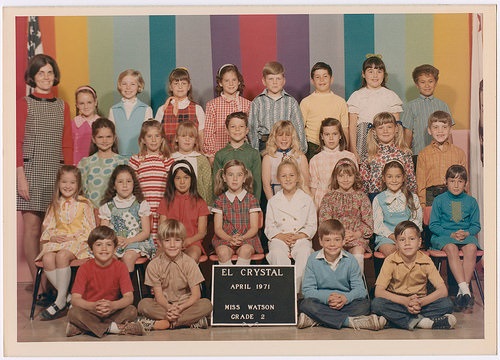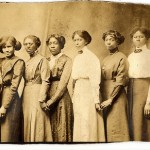Renewable Resources
Most agree that social justice in America is becoming more questionable. We are a nation drenched in biases, prejudices, and mistreatments. We have a multitude of programs and initiatives aimed at righting these wrongs ranging from the Civil Rights Movements to the DREAM Act. Yet, we continue to struggle. Therefore, let us consider one of our most powerful renewable resources for cultural and generational change: the child. This is not a cliché. The child can bring societal change due to natural design requiring him or her to grow into an adult. For Montessori, the moral development of the child requires teacher understanding and can be greatly aided in the classroom.
Who Am I? Who Am I in this world? Where do I belong?
There are unique characteristics that reside within the child age 6-12 that can directly impact the moral compass of the adult yet to come. This is when the child begins to branch out into a wider society to a new level of social life and searches for his place. He takes on a herd mentality and begins to develop closer relationships with peers as they make their own “society” with rules, roles, expectations, codes, and customs that bond them together. The members understand that not adhering to these agreements hold consequences. The child develops independence and discovers that he can do things for himself and for others. He also develops and hones his conscience. He is earnest in his desire to know not only what is right and wrong, but also what is good and bad, fair and unfair…he wants to know why.
Societal Lessons Are Everywhere
Within the class, the observant teacher can use this sensitive period to build up the characteristics that should be reflected in society as a whole. It is important the teacher understands that it is the child’s work to figure out morality. The teacher’s role is to support the child in this process. This can be done by providing an environment where the children can make their own experiences and deal with the outcomes in safety. When allowed to choose their own working companions, children experience many opportunities to learn how to work and live together simply by sharing the same space and objective. Help is also given through practical lessons of grace and courtesy that can be applied in daily life. A presentation of the laws of the universe aids the child in understanding that laws can preserve, protect, and make it possible for life to exist. This understanding helps the child see laws as good things rather than bad. All of these activities naturally lend to questioning, and use of reason and logic. These traits and skills guide the child onto a path leading to a contributing member of society.
Imagine a World
Use of imagination is another great aid in the moral development of the child. She can take on the perspective of others and come to understand the impact of actions. Through the study of history, she can learn from the decisions of our ancestors and how they interacted with those around them. She can use this information to help her make decisions about herself and how she will treat others. Debate and discussion is also an impactful tool. The child is willing and able to develop and hold an argument. Imagination helps her understand different types of government. The teacher can apply this to the class and help the child reflect on government impact. My students readily utilize the democratic vote to help settle disputes and they understand the boundaries of authoritative decisions.
Social Studies and History…The Perfect Duo
Compared to the content that could be learned, State Standards to do not place much emphasis on these two areas during elementary. Coupled with the demands of math and language, it may be easy to lay them aside. I encourage educators not to do this. Find a way to weave these stories and opportunities into the environment. Children at this age are very passionate about social justice and fairness. Give it to them while they are willing to receive it. Use this opportunity to shape compassionate and morally responsible global citizens.









Comments 2
Children ARE so passionate about social justice issues! As an English teacher, I had the joy of finding reading pieces and writing assignments that could harness this passion to do good in the world or rail against injustice through the content of what I was teaching. Time and time again, I saw how transformative it was for kiddos and, as I’ve followed former students on Facebook over the years, I can see hints of the influences of my curricular decisions in the amazing people they’ve become. Always questioning… constantly pushing boundaries. Thank you for this post.
This is the best blog I’ve read this year.